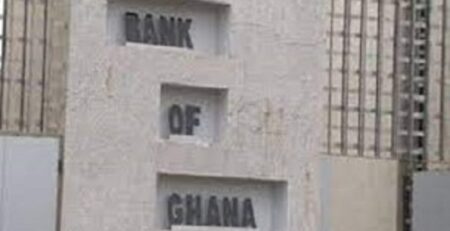Demand for T-Bills, others rebound despite policy rate cut
The fall in the Monetary Policy Rate of the Bank of Ghana appears to have interestingly boosted demand in short term securities, particularly Treasury bills and bonds though the rate cut is expected to rather stimulate lending.
Interestingly, banks that are largely the biggest investors in T-Bills are shifting their investments in the short term securities, though they are expected to increase lending to businesses and household consumers. Covid-19 lingering risks appear to have pushed the banks to adopt the wait and see posture before increasing loans to consumers.
Treasury bills sale was oversubscribed by about 14% to 1.34 billion cedis in the recent auctioning, despite mixed developments in the last eight weeks.
Senior Economic Analyst at Databank Research, Courage Martey told Joy Business the lower yield on the T-Bills will help government to refinance the maturing debt instrument at a lower cost.
“Well yes, it is true that liquidity has improved remarkably on the inter-bank market over the past two weeks and that has also propelled demand for government of Ghana securities across the maturities spectrum from T-bills to bonds. And the increase in demand is one key reason why yields have actually come down in the past couple of weeks. The real driver of this demand and liquidity for that matter has been the events that have happened particularly on the monetary policy side in the past two weeks.” “First, you recall the unexpected cut in Monetary Policy Rate by a 100 basis point that triggered renewed expectation of a decline in interest rate for short term securities…securities with short term to maturity”, he stressed.
Mr. Martey says he expects the fall in inflation coupled with the cut in the policy rate to lower lending rates, going forward.
“We expect that this demand [Treasury bills] will continue to pull down yields in the few weeks ahead and this lower yields also means that the government of Ghana can then refinance its matured papers at a lower cost compared to how much they issued the papers that are maturing currently.”
“So overall, it appears the monetary policy action by the Bank of Ghana two weeks ago followed by the decline in inflation in the subsequent week has boosted a demand on the market and its pulling down yields…maybe aggressively in the past couple of weeks.
BoG cuts Policy Rate to 13.5%
The Monetary Policy Committee of Bank of Ghana cut its key lending rate to commercial Banks by 100 basis points to 13.50%, the first time Since November 2019.
According to the Governor of the Bank of Ghana, Dr. Ernest Addison, the move was influenced by a pick-up in economic activities and recovery towards pre-pandemic levels.
The move is expected to impact on the cost of credit in the next two months and stimulate economic growth.
Source: Myjoynline














Leave a Reply